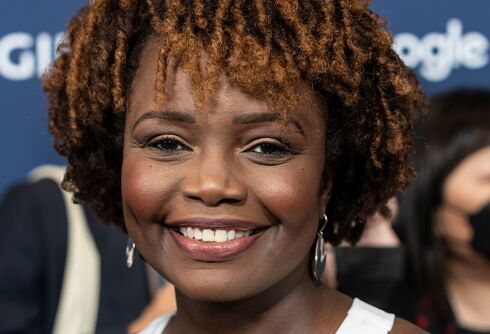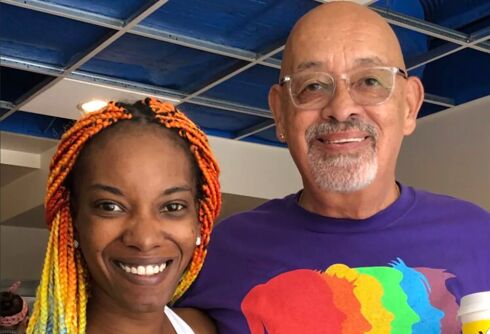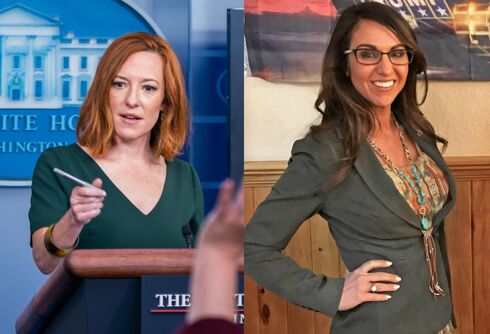The LGBT blogosphere has been wrestling with comments made by actress Cynthia Nixon (immortally Sex in the City‘s ”Miranda”) to The New York Times that she chose to be a lesbian:

“I gave a speech recently, an empowerment speech to a gay audience, and it included the line ‘I’ve been straight and I’ve been gay, and gay is better.’ And they tried to get me to change it, because they said it implies that homosexuality can be a choice.
“And for me, it is a choice. I understand that for many people it’s not, but for me it’s a choice, and you don’t get to define my gayness for me.
“A certain section of our community is very concerned that it not be seen as a choice, because if it’s a choice, then we could opt out. I say it doesn’t matter if we flew here or we swam here, it matters that we are here and we are one group and let us stop trying to make a litmus test for who is considered gay and who is not.”
She doubled down in an interview with the Daily Beast, but in a way that helped clarify where she’s really coming:
“I don’t pull out the “bisexual” word because nobody likes the bisexuals.
“Everybody likes to dump on the bisexuals… but I do completely feel that when I was in relationships with men, I was in love and in lust with those men. And then I met Christine and I fell in love and lust with her. I am completely the same person and I was not walking around in some kind of fog. I just responded to the people in front of me the way I truly felt.”
The negative reaction from gay blogs seems understandable, but perhaps unwarranted. Undoubtedly, as the gay community argues in courts across the country that homosexuality is immutable and ex-gay therapy is harmful and ineffective, having a prominent celebrity and activist say she “chose” to be gay is a little off-message. But I think it’s pretty clear that’s not what she meant, and so the real problem is that even within the gay community, we still have a very shallow understanding of sexual identity.
The bottom line is that there is a big difference between sexual orientation and sexual identity, even if it usually goes unnoticed. In other words, the language a person uses to describe how they identify does not have to perfectly align with what their natural attractions actually are.
Never Miss a Beat
Subscribe to our newsletter to stay ahead of the latest LGBTQ+ political news and insights.
The Williams Institute estimates that about 3.5 percent of the population identify as LGBT, but as many as 11 percent of Americans report having same-sex attractions. I think Nixon’s comments make it pretty clear that she did not choose her attractions to women — nor her attractions to men — she merely chose to identify primarily as a lesbian.
Of course, the other factor is persistent biphobia (and inherent at its root, sexism) in both the straight and gay communities. Cathy Renna has highlighted that women’s sexuality is much more fluid than men’s, which makes E.J. Graff’s observation that most of the comments against Nixon have come from gay men fairly unsurprising. The impulse is still to fit people into neat little boxes, and some — again, often men — refuse to believe bisexuality even exists.
By the way, science says it does. As Tyler Lewis has pointed out here before, this problem extends into the media, allowing for very few authentic portrayals of bi men. Nixon’s comment that “nobody likes the bisexuals” speaks for itself.
If the LGBT movement is fighting for the right of all people to own their identities free from discrimination, we should be better role models for celebrating that ethic.













